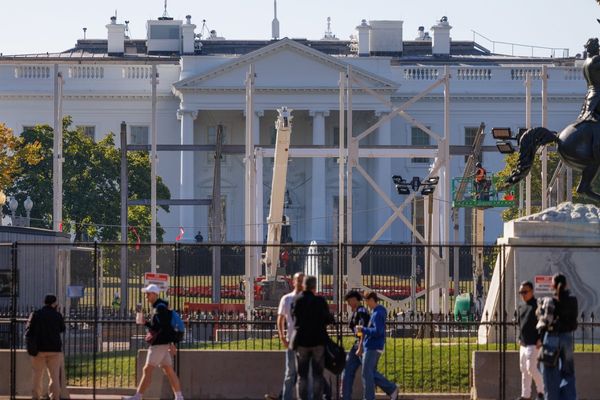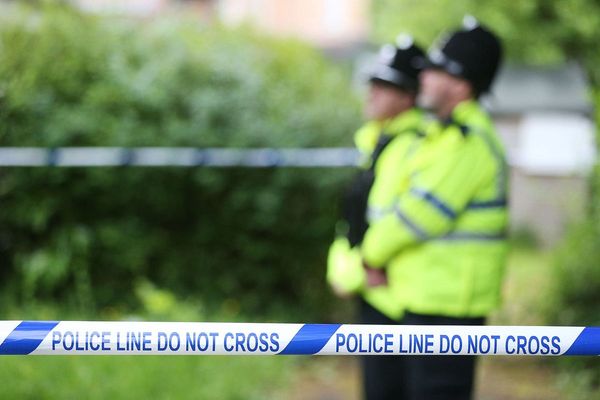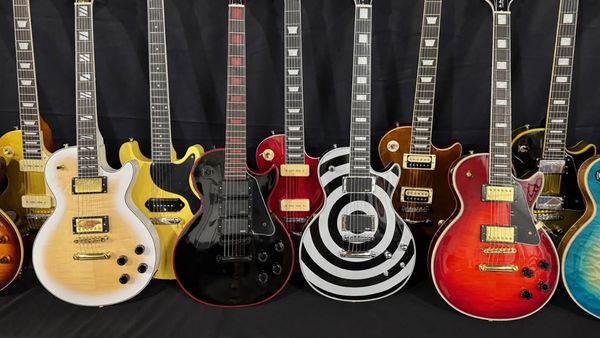WASHINGTON _ Federal investigators have traced a number of suspicious financial transactions involving Maria Butina, a Russian gun rights activist who was arrested July 15, a Republican operative and several obscure companies, people familiar with the matter say.
The transactions could help explain why FBI counterintelligence agents kept a close watch over the last two years on Butina, a 29-year-old graduate student who was taken into custody in Washington when investigators suspected she was preparing to leave the country. She is charged with conspiring to covertly serve as a Russian agent seeking to influence the National Rifle Association and other U.S. political groups.
McClatchy reported in January that the FBI was investigating whether Butina's mentor, Alexander Torshin, had funneled money to the NRA in an effort to bolster the group's financial support for Donald Trump's presidential campaign. The nation's leading gun rights lobby was Trump's biggest financial backer, spending more than $30 million on his behalf and in opposition to Trump's Democratic rival, Hillary Clinton, an advocate for tougher restrictions on firearms sales.
However, it could not be learned whether the suspicious transactions related to the NRA or led investigators to a channel for large movements of money to the group. The NRA has said it received only $2,500 from Russian donors in 2016 and that no foreign money has gone for its election activities, which would have been illegal.
The inquiry into possible Russian attempts to infiltrate and influence the NRA began before special counsel Robert Mueller's investigation of Russian meddling in the 2016 elections and even before Trump's inauguration, said two sources who spoke on condition of anonymity because the matter is confidential. While it has overlapped with Mueller's inquiry, the NRA investigation is being overseen by the U.S. attorney's office for the District of Columbia.
Butina's lawyer, who calls her indictment "overblown," said in a letter to the Federal Election Commission last March that she has had no role in donating or facilitating the movement of political donations toward U.S. elections.
Republican operative Paul Erickson also was involved in the financial dealings that drew investigators' interest _ transfers of money exceeding $10,000 to limited liability corporations, including two created in Erickson's home state of South Dakota, the sources said. Both of these people, including one of the sources and a third individual, also spoke on condition of anonymity because of the confidential nature of the investigation.
Investigators at the Treasury Department received a number of Suspicious Activity Reports "relating to entities tied to Butina and Erickson and funds that were transferred to them," including some that appear to have come from Russia, one of the people said. Financial institutions are required to flag unusually large movements of money for regulators, mainly to combat money laundering.
Prosecutors have said that Erickson, a longtime NRA member and fundraiser, and Butina were romantically involved, though she privately detested continuing that relationship. Erickson, who has not been charged in the Russia inquiry, is widely believed to be the figure identified as "U.S. Person 1" in an affidavit supporting the conspiracy indictment against Butina.
Butina's attorney, Robert Driscoll, told McClatchy that about $20,000 passed through one of the South Dakota firms, Bridges LLC, which Butina formed in early 2016, with Erickson serving as the firm's registered agent. Driscoll said Butina received four $5,000 payments through that firm for consulting work for the Outdoor Channel, where she assisted in the production of a segment featuring bear hunting in Russia.
In a letter last March to the FEC, which also has made inquiries into the NRA's Russia ties, Driscoll said Bridges was "set up to pay for certain educational expenses of Ms. Butina."
The indictment against Butina alleges she worked at the direction of a Russian official matching the description of Torshin , who is deputy governor of Russia's central bank. Spanish authorities previously accused Torshin of helping Russian mobsters launder money into Spanish banks and hotels _ allegations Torshin has denied.
There has been no indication whether the Justice Department also will initiate charges against Torshin, who became a lifetime member of the NRA in 2011 and attended six consecutive annual conventions of the group beginning that year. Torshin was placed under U.S. sanctions last spring.
A spokesman for the NRA told McClatchy earlier this month that the group had "frozen" Torshin's lifetime membership, but declined to comment about the developments relating to Butina or whether her lifetime NRA membership also has been suspended.
In addition to Torshin, Butina's indictment referred vaguely to two other unnamed figures: a "U.S. Person 2" and a Russian billionaire who was Butina's "funder." The Washington Post reported that the billionaire is Konstantin Nikolaev, an investor in U.S. energy and technology companies whose wife, Svetlana, owns a leading Russian gun company, Orsis, that an NRA delegation visited in 2015.
Driscoll said Nikolaev served as a sponsor of Butina's Russian gun rights group, The Right to Bear Arms, and paid some of the group's expenses.
"I don't know whether he sent her additional money," he said.
The Wall Street Journal last Thursday identified "U.S. Person 2" as George O'Neill, a Rockefeller heir who hosted a dinner in Washington last year for Torshin, Erickson and others.
Driscoll contends that investigators have manufactured a conspiracy that never happened. He said Butina is a straight-A student during two years in international studies at American University in Washington who was merely a highly visible advocate for improved U.S.-Russian relations.
Investigators for the Senate intelligence committee interviewed Butina under oath for about eight hours last April as part of its broad, parallel investigation into Russia's interference in the 2016 election campaign, two people familiar with that inquiry said. The panel is cooperating with the criminal investigation and has allowed federal prosecutors to review a transcript of her testimony, the sources said.
Separately, four Democratic senators Thursday asked former NRA Presidents Pete Brownell and David Keene, as well as five other members of the 2015 NRA delegation to Moscow to provide details of their trip that was hosted by Butina's Russian gun rights group.
In letters to each member of the delegation, Sens. Ron Wyden of Oregon, Elizabeth Warren of Massachusetts, Sheldon Whitehouse of Rhode Island and Richard Blumenthal of Connecticut sought to drill deeper into their activities while in Russia, including a meeting with a senior official facing U.S. sanctions.
They pointed to a sworn FBI affidavit released with Butina's indictment. In it, Special Agent Kevin Helson said Butina began "laying the groundwork in Russia" for her alleged influence campaign as early as March 24, 2015.
The senators' letters ask each delegation member to provide all documentation of exchanges with Torshin and Butina, "including e-mails and other correspondence," dating to 2010.
The senators also asked for information about interactions between the NRA delegation members and Dmitry Rogozin, deputy prime minister overseeing Russia's defense industry. At the time, Rogozin was facing U.S. sanctions for his alleged role in Russia's 2014 military incursion into Crimea, meaning that Americans were barred from doing business with him.
In addition, the senators inquired about the financing for the trip.
One delegation member, Milwaukee County Sheriff David Clarke, reported on his financial disclosure statement for 2015 that Brownell, a part owner of a major gun manufacturer who led the NRA for a year beginning in the spring of 2017, paid $13,785 for his travel to Russia. Clarke said Butina's group, The Right to Bear Arms, paid $6,000 toward the costs of his stay, including $1,200 in meals and $3,000 for a week in a hotel.







